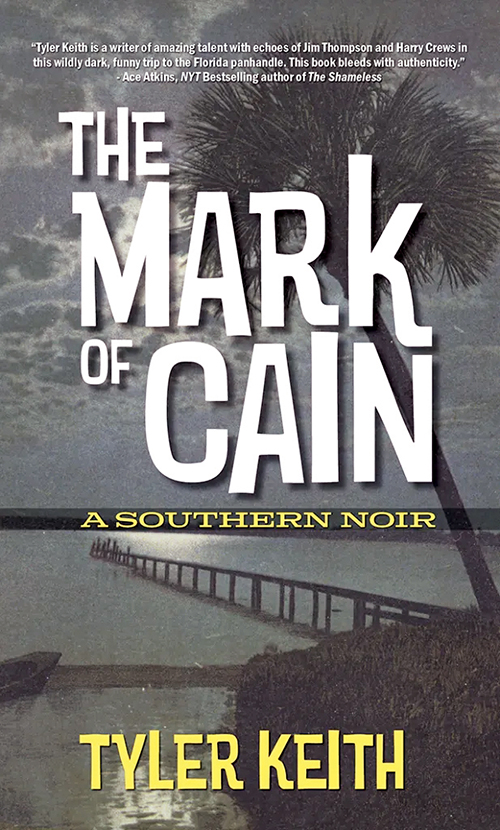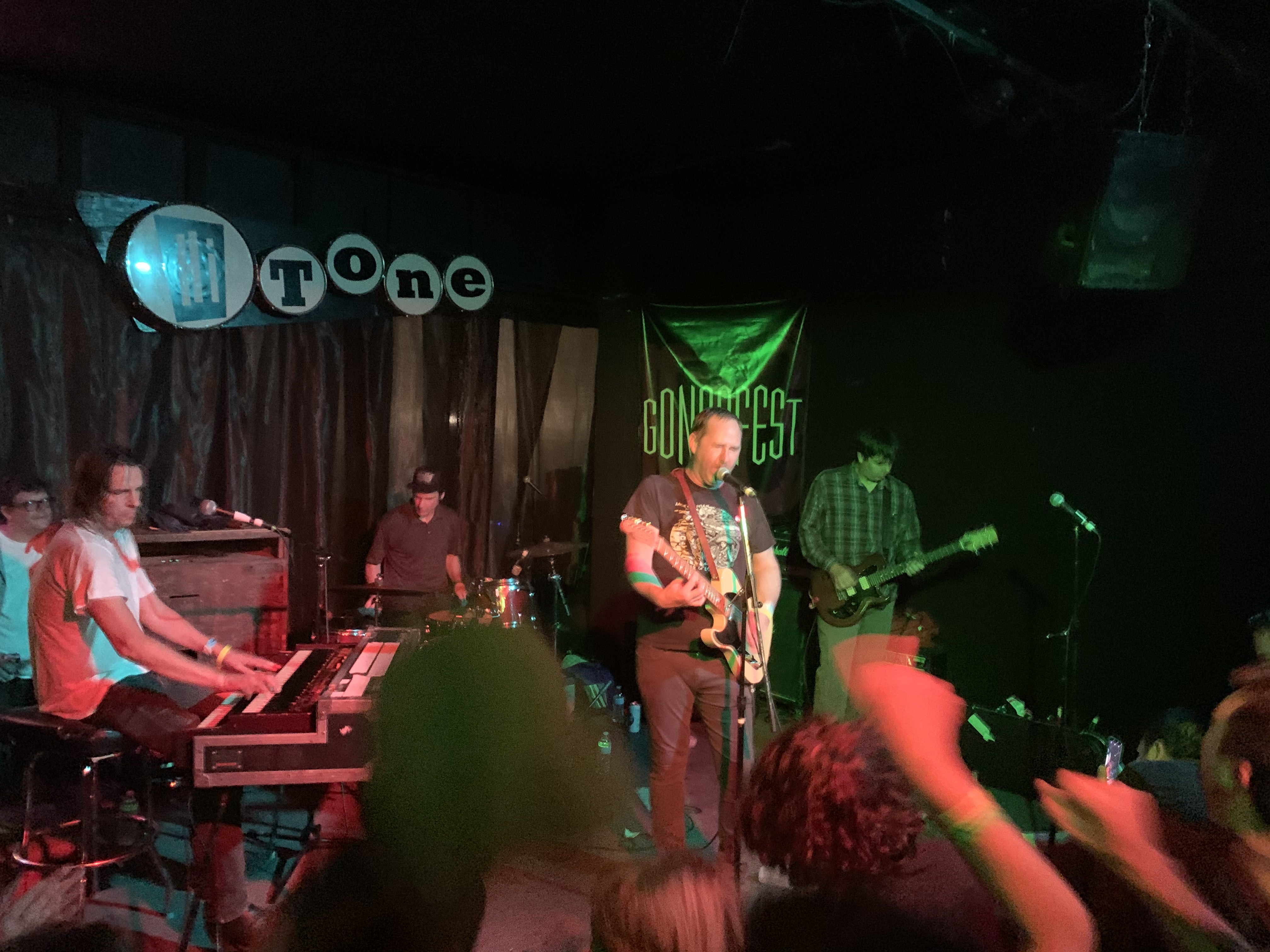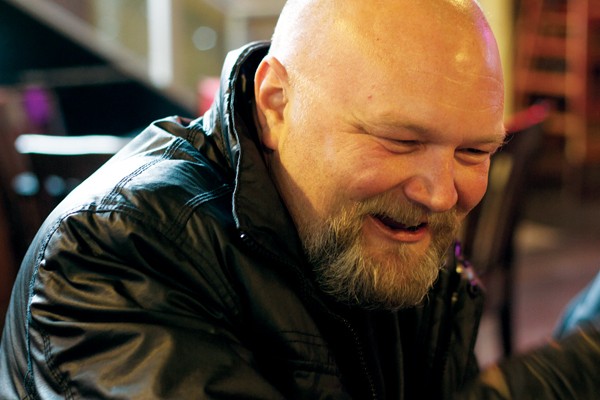“I prayed, ‘Dear nothing, come into my life. Fill me with your infinite space. No one knows the size of your great nothingness. In nobody’s name, Amen.’” So says Ronnie Harrison, recalling his own loss of faith as his fellow ex-cons sing “I Saw the Light” at Camp Eden’s Wednesday prayer meeting in Gulf Breeze, Florida. In a deft touch capturing the complexity of the character, author Tyler Keith portrays Ronnie reflexively singing right along with the other denizens of the halfway house, even as his thoughts turn cold and nihilistic.
Keith, best known as the songwriter and guitarist behind such bands as The Neckbones, The Preacher’s Kids, and The Apostles, includes some fine character studies in his debut novel, The Mark of Cain (Cool Dog Sound), but none as subtle as the book’s protagonist. Yet, paradoxically, this very character is a cipher as the novel opens. Ronnie, freshly paroled from federal prison, begins the tale as a blank slate.
“I had nothing … I doubted if I was even me anymore. I’d put myself in suspended animation for so long I couldn’t remember who I used to be. All I knew was, that when the prison doors opened it also opened up a flood of the deepest pent-up emotions that’d I’d hidden away for so long.” So Ronnie muses, and as he allows memories in, so too does the reader learn of the tangled family web in which he is caught.
Most of the novel is set in Camp Eden, the combination ministry/rehabilitation program where Harrison eases back into life on the outside. Eden, a finely-drawn universe unto itself populated with ex-cons who never seem to go further than a halfway house, is a sorry excuse for freedom, a kind of purgatory from which Ronnie can’t escape. But it nonetheless is a perch from which he can avoid the real danger zone: Holmes County, where family ties offer no salvation, only a return to his former life of crime.
“You’ve heard of the three M’s of Holmes County?” one character asks. “Moonshine, marijuana, and methamphetamines.” Presiding over the county, trafficking all of the above and owning the local judges, is the shadowy figure of Uncle Albert. The kingpin is made all the more threatening by his absence, as Ronnie negotiates living as a free man while steering clear of his compromised family past. It all seems safely at arm’s length until a certain Travis Campbell, with close ties to Uncle Albert, shows up at Eden, trying to coax him back into his former life.
Meanwhile, Ronnie’s preoccupied with his other former life, his ex-wife Tammy and their now grown daughter Tina. Wracked with guilt over his lost years in prison, he clings to them as his one hope for a straight life. A failure as a dad, he broods over his own father, a preacher who, the story goes, disappeared early in Ronnie’s life. Such bouts of longing and regret reveal Ronnie at his most sympathetic, drawing us down his inexorable road back to Holmes County and his past.
The language here is basic yet evocative. Keith, who grew up in north Florida, conjures up the landscape and its people as only a native can. Even when the hard boiled, matter-of-fact prose descends into cliched sentiments of the heart — “Tammy was the only woman I ever really loved” — one can hear Ronnie’s credible voice behind it. If the characters think in cliches, that’s just another prison, constraining them to courses of action that take on their own logic.
That’s what makes this a compelling page-turner that, in the grand tradition of Jim Thompson, elevates the noir thriller into loftier realms of literature. Our hapless narrator’s default approach to life is to “just let it all happen,” a passivity that has only led him to prison and a trail of broken relationships. But his time at Camp Eden, however corrupt and confining, leads him, through the unfettered violence of the final pages, to confront his own past and find some kind of redemption. Even that is broken, somehow, but he’ll take it.
Tyler Keith will read from his new novel (with Mississippi author Tim Lee) at Goner Records, Saturday, December 17, 5:30 p.m.

 Mike Stanton
Mike Stanton 







 Amurica.com
Amurica.com  Laura Jean Hocking
Laura Jean Hocking 